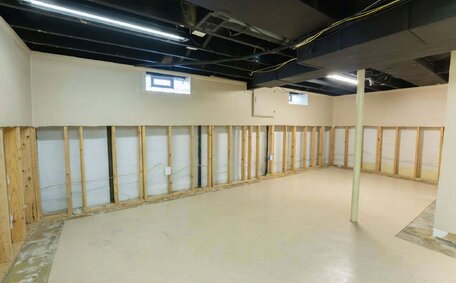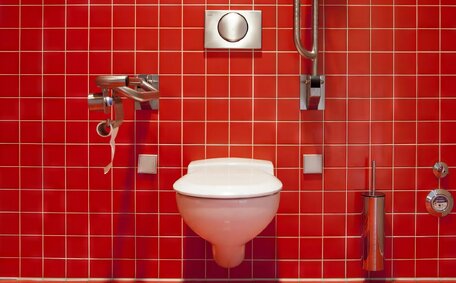Introduction to Hot Water Systems and Their Lifespan
Welcome homeowners! Understanding how to make your hot water system last longer and grasp its maintenance needs is crucial for ensuring a consistent supply of hot water in your home. This insight also empowers you to make informed decisions about repairs or replacements, enhancing its lifespan based on signs of wear.
There are key variations across electric, gas and solar hot water systems when it comes to expected lifespan. At St Peters Plumbing, with years of experience serving Sydney, we’re experts in all system types. Read on as we clarify misconceptions and provide practical guidance on maximising your system’s longevity.
The Impact of Water Heater Type on Expected Lifespan
The lifespan of hot water systems varies significantly with the type of system. Here’s a breakdown discussing the average lifespan of types often found in Sydney homes:
- Electric storage tank systems - These have a life expectancy that can last between 8-12 years on average. Their lifespan depends largely on water quality and heating element durability.
- Gas storage tank systems - With proper maintenance like anode rod replacement, these can last 15-20 years. Factors like water chemistry affect tank corrosion over time.
- Heat pump systems - These modern electric systems typically hold a respected 15-25 year life expectancy hot, according to water experts. Their average lifespan reflects usage intensity and compressor durability.
- Solar water heaters - With a 20+ year lifespan, part of which is usually under home warranty, these systems last the longest. Thermosiphon models with minimal electronics tend to have better longevity.
Irrespective of the system type, factors like water quality, usage patterns, and regular maintenance influence the operational lifespan of your hot water system. Systems that cater to large homes and less ideal water conditions may experience quicker wear.
Key Factors That Can Shorten or Extend Lifespan
Several factors influence the lifespan of hot water systems:
- Water quality - Hard water can lead to scale buildup and corrosion inside the tank or heating elements. Water treatment is a proactive measure that can help prolong the lifespan of your system.
- Usage patterns - Frequent and intense hot water usage causes faster wear, reducing how long do water heaters function optimally. Systems in larger households don’t can last up as long.
- Maintenance - Regular checks, flushing and replacing parts like anode rods can help extend system lifespan dramatically, addressing the question of how long do your maintenance efforts extend usability.
- Installation quality - Proper installation according to manufacturer guidelines optimises performance and longevity, a critical factor a hot water system can benefit from.
- Water temperature - Excessively high water temperatures accelerate tank corrosion and parts wearing out, ultimately shortening how long do hot water heaters last.
Here in the St Peters area, hard water quality and high usage by larger families can shorten the system life, whether gas electric or solar, your hot water heater operates within. But proactive maintenance like annual anode rod checks can add years to the life your hot water system enjoys. Ultimately a quality installation optimises durability.
Routine Maintenance for Maximizing Lifespan
Routine maintenance is crucial for maximising the potential lifespan of your hot water system. Sydney homeowners should perform these key tasks to ensure optimal heater longevity:
- Flush the tank - Annually flush out sediment from your hot water tank with a pump hot water system maintenance task, to prevent scale buildup and corrosion. Drain several litres from the lower valve to manage sediment.
- Replace anode rods - Every 2-4 years, replace magnesium or aluminium anode rods that protect against corrosion, greatly benefitting your system’s longevity.
- Insulate electric heaters - Wrap older electric hot water heaters with an insulation blanket, which can improve energy efficiency and extend component lifespan.
- Descale heat exchangers - Descale the heat exchanger in tankless systems annually or install a pump hot water system to remove mineral deposits, ensuring your water heating performance remains optimised.
- Inspect valves and pipes - Inspect both hot and cold water inlet valves, filters and pipes for leaks or corrosion which can impact water supply.
Keep corrosive products like pool chemicals away from your gas water heater, and turn heaters off before holidays to improve longevity. Following these maintenance tips coupled with addressing the hot water heater needs through water treatment can extend the lifespan of systems in St Peters by years.
Warning Signs Your Water Heater Needs Replacing
There are several warning signs indicating your hot water system may need replacing:
- Leaks - Persistent water leaks from the tank, valves or fittings can signal advanced corrosion requiring replacement.
- Cloudy water - Discoloured or cloudy hot water points to a heavily corroded interior and possible sediment buildup.
- Noisy operation - Knocking or rumbling noises on startup suggest worn-out heating elements nearing end of life.
- Low water pressure - Poor flow at hot water outlets hints at obstructed pipes or failing components.
- Reduced hot water availability - Insufficient hot water delivery, especially during peak use times, indicates dying system functionality.
- High energy bills - Spikes in energy usage connected to a hot water system may indicate efficiency issues requiring replacement.
If these warning signs are familiar, it’s time to consider a replacement; contact St Peters Plumbing to explore the types of systems available for your home. We can review your hot water system’s age, maintenance history and symptoms to advise whether repair or replacement is the best option moving forward.
Deciding Between Repairing or Replacing Your Aging System
As a hot water system ages past 10 years, the decision between repairing or replacing becomes crucial. If your system is close to or over ten years old, investing in a new system could be more economical in the long term despite the upfront cost. Weigh total costs of both options - procuring a new water heater with high-efficiency could pay for itself within 5 years through energy savings. We’ll consider your usage, system’s symptoms, repair costs, and provide guidance on various systems with respect to lifespan, to determine whether repair or upgrade is the best course of action.
Consider efficiency, repair costs, and remaining lifespan before opting for repairs. New systems could enhance efficiency by up to 30% or more. Newer systems often improve efficiency by 30% or more.
Choosing the Best New System for Your Needs
When selecting a new hot water system in Sydney, consider your household size, climate, budget and energy type. Smaller households may prefer compact electric heat pump units, using air to heat water efficiently. Solar hot water, which aligns system best with eco-conscious values, works well in our sunny climate, despite higher upfront costs. Smaller households may prefer compact electric heat pump units, using air to heat water efficiently. We advise choosing water tanks appropriately sized for your typical usage - undersizing risks hot water running out at peak times. Contact our St Peters Plumbing team to review your needs and recommend the most suitable type hot water system replacement. Or an electric hot water system employing heat pumps can provide energy savings of 50-60% over conventional electric storage tanks.
Continuous flow gas hot water systems are cost-effective for larger families by providing endless hot water without the unnecessary expense of oversizing.
Conclusion and Contact Information
In summary, comprehending your hot water system’s lifespan and maintenance is essential. By being informed about warning signs of failure and understanding what hot water system your home needs, you can proactively maintain and extend your system’s longevity by years. Newer systems with a high-efficiency water system last significantly longer, offering improved performance and energy savings potential.
For tailored advice on maximising your existing system’s life or selecting the best replacement, contact your local team at St Peters Plumbing. Feel free to email us or call 1300 349 338 to discuss your specific needs.
With extensive experience servicing Sydney homes and businesses, we welcome your questions.
We offer complimentary consultations and detailed quotes for repairs, maintenance and installations across all types of systems. Book an appointment for one of our licenced technicians to inspect your current setup. We look forward to helping ensure a consistent supply of hot water in your St Peters home!






